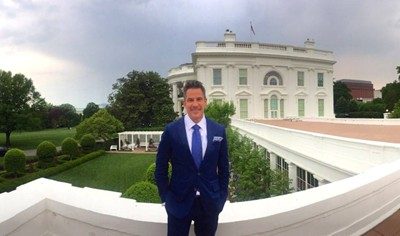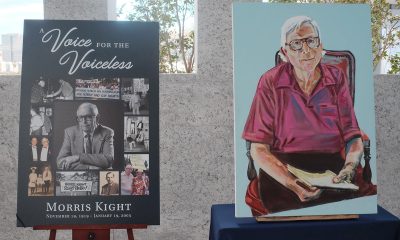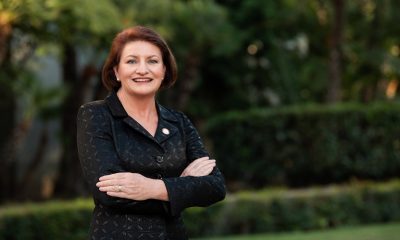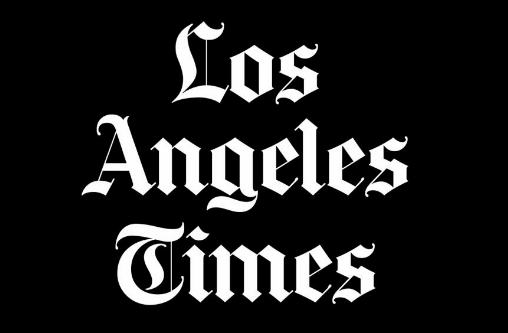Film
Civil rights pioneer Bayard Rustin ‘was denied’ his place in history
DGA Award and five-time Tony Award winner George C. Wolfe directed the film from a script written by Julian Breece and Dustin Lance Black
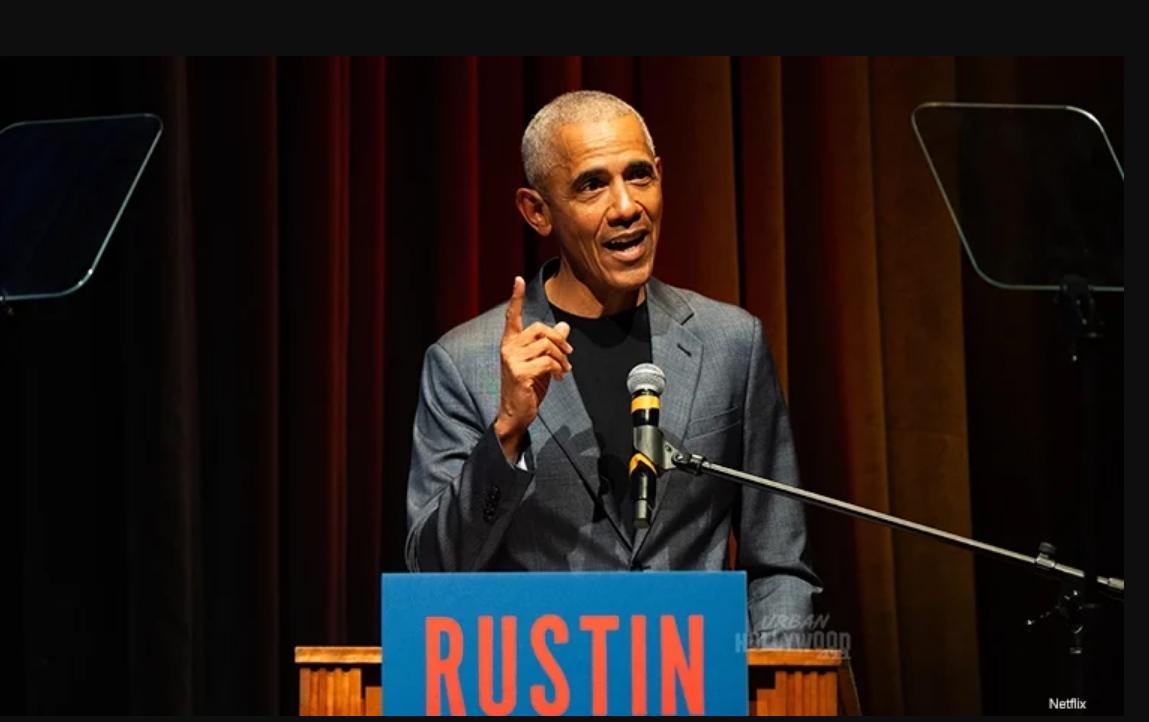
By Anita Bennett | WASHINGTON – Bayard Rustin was a key figure in the Civil Rights Movement, yet he “was denied” the credit he deserved because he was gay, former President Barack Obama recently said.
Obama made the comment at a screening of the Netflix film Rustin on Nov. 10, at the inaugural HBCU First Look Film Festival — celebrating Black filmmakers and creatives.
Rustin opened the festival during a special event at the National Museum of African American History and Culture in Washington, D.C.
Related Story: ‘Rustin’ Trailer – Colman Domingo Ignores Threats to End Fight for Civil Rights

After being introduced by former first lady Michelle Obama, the 44th president recalled his personal connection to the Civil Rights leader and said he deserved better than being snubbed by historians.
“In 2013, I had the honor of awarding Bayard Rustin the Presidential Medal of Freedom,” Obama told the audience. “For those of you who may not be aware, this is the highest civilian honor that can be conferred for people who have helped to shape our country and move it to a more perfect union.”
Rustin was the architect of the 1963 March on Washington.
The Pennsylvania native rallied people from all walks of life and pressed Rev. Martin Luther King Jr. to take part in the march. Yet Rustin was largely forgotten by historians after his death in 1987.
“It is hard to overstate Bayard Rustin’s influence on the Civil Rights Movement,” Obama said.
“He was a pioneer of freedom riders to desegregate interstate bus travel. He went on a bus in 1942 and got arrested for not sitting in the back, 20 years before the publicized freedom rides took place. That’s how far ahead he was of his time,” he added.
Obama noted that some Americans still benefit from Rustin’s work.
“This is one of the seminal figures that changed the course of American history. Without him, I might not have been president,” he said.
“For decades, Bayard Rustin was denied his rightful place in history,” Obama continued. “The main reason was because back in the ’40s and ’50s he was openly gay.”

The critically acclaimed biopic on Rustin’s life stars Emmy Award-winning actor Colman Domingo.
The cast also includes Chris Rock, Glynn Turman, Aml Ameen, Gus Halper, CCH Pounder, Da’Vine Joy Randolph, Johnny Ramey, Michael Potts, Lilli Kay, and Jordan-Amanda Hall, with Jeffrey Wright and Audra McDonald.
DGA Award and five-time Tony Award winner George C. Wolfe directed the film from a script written by Julian Breece and Dustin Lance Black.
The Obamas are executive producers on the film through their Higher Ground productions. The movie is produced by Academy Award winner Bruce Cohen, Higher Ground’s Tonia Davis and George C. Wolfe.
Rustin begins streaming on Netflix Nov. 17. Watch the video of Obama’s speech below:
******************************************************************************************

Anita Bennett, spent years covering entertainment as an editor at The Wrap and the Los Angeles Daily News, and as a Hollywood correspondent for television network, Black News Channel (BNC). Anita is a graduate of Howard University in Washington, D.C. and lived in Europe as a Fulbright Scholar.
******************************************************************************************
The preceding piece was previously published by Urban Hollywood 411 and is republished with permission.
Urban Hollywood 411 is a destination for the latest news in urban entertainment, including industry analysis and interviews with news-makers from the film, television and media worlds. The site was founded in 2018 by award-winning journalist Anita Bennett.
Arts & Entertainment
Lady Tacos brings famous tacos de canasta to Hola Mexico Film Festival
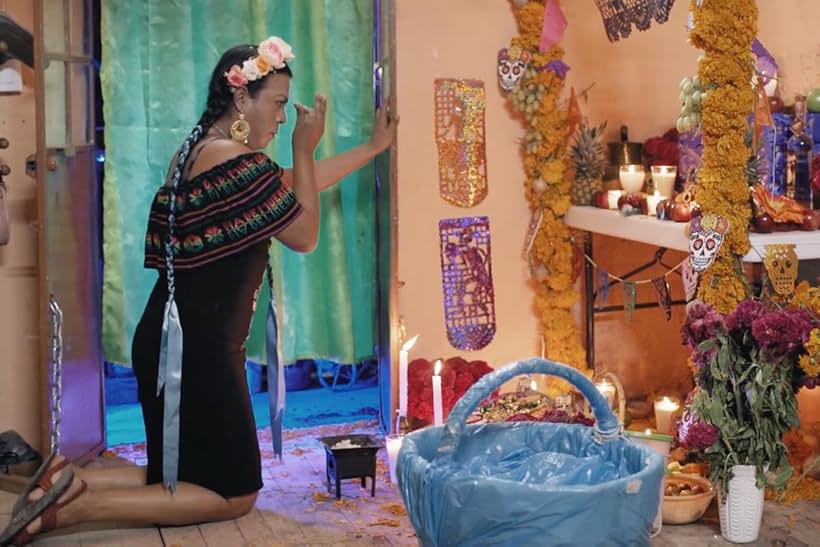
“¡Tacos, los tacos de canasta, taaacooos!”
This echoed at the screening of “Transmexico” on Thursday at the Hola Mexico Film Festival.
It’s also the sound many people in Mexico City hear and recognize as Lady Marven, better known as Lady Tacos de Canasta.
She is one of three trans women featured in the documentary “Transmexico,” whose story brings joyous laughter and tears to the audience at HMFF.
Earlier this year, the film won the Audience Choice Award at the Santa Barbara Film Festival.
The documentary features the stories of three trans women throughout Mexico. It explores their experiences with transition, social acceptance and access to health care within a culture and government that upholds impunity for crimes against women and gender-nonconforming people.
Director Claudia Sanchez approaches the themes of social stigma, discrimination and death with care and compassion as she frames the narrative around the true and lived experiences of the documentary’s subjects.
“I was a witness of the abuse and bullying that trans women suffer through the first trans woman I ever met when I was around 5 or 6 years old,” Sanchez told the audience at the Q&A. “I decided to make a documentary that would highlight the beauty of the trans [femme] community because I didn’t think it was fair that the entire community is usually labeled negatively.”
“It’s important that we can do this and show people that we are here and we are present, and that there are other titles and labels – like lawyer, mother, queen – that represent us,” Lady Tacos said in Spanish. “Today, we want to claim titles and labels that impress the world and have impact on the world and that show what we are truly made of, and what we are capable of.”
Lady Tacos made a red carpet appearance at HMFF, joining Sanchez and others on a panel for a Q&A following the screening.
She spoke about how proud she felt experiencing this journey and seeing herself on screen sharing her story.
Lady Tacos – who identifies as muxe, a third gender in Mexican culture – went viral on social media after she was recorded being harassed and misgendered by the police force in Mexico. They took her basket and repeatedly called her “sir” and “mister” as they forced her to stop selling tacos on the street. She angrily yelled back and made it known that she clearly doesn’t identify as a male, motioning to her dress and trenzas, or braids.
Since then, she has become a well-known and respected internet celebrity to the people of Mexico City and has been able to open her own brick-and-mortar restaurant with the support of her family and many members of the LGBTQ+ community in CDMX.
The film also features trans activist Kenya Cuevas Fuentes. Fuentes shared her story of being a former sex worker who started at age 9. By 10 years old, she had been incarcerated, and by her teen years, she contracted HIV.
As an adult, Fuentes witnessed the murder of her good friend, Paola Buenrostro. This experience shaped Fuentes and turned her to activism because she knew Buenrostro would never get the justice she deserved and her killer would continue to walk free.
In 2016, transfemicide was officially recognized as a crime in Mexico City following Buenrostro’s death and activism by Fuentes.
“TransMexico” highlights the accomplishments and strides for justice that Fuentes has brought to Buenrostro’s case.
Felicia Garza’s story is also featured in the documentary, showing a more hopeful side of the transition journey.
She shares her struggle with not only coming to terms with her identity – and being willing to lose everything in the process – but also how her story offers insight on how family members struggle and learn to embrace their family members’ new identity.
“You have to be willing to lose everything, and if you’re not prepared for that, don’t do it,” Garza said in the documentary.
Following the Q&A, guests lined up outside the theater for complimentary tacos de canasta.
The film festival screened the documentary on Thursday night at Regal Theatres at L.A. Live and will continue making rounds at upcoming film festivals.
Film
‘Queer Diaspora,’ a new film series at the Philosophical Research Society
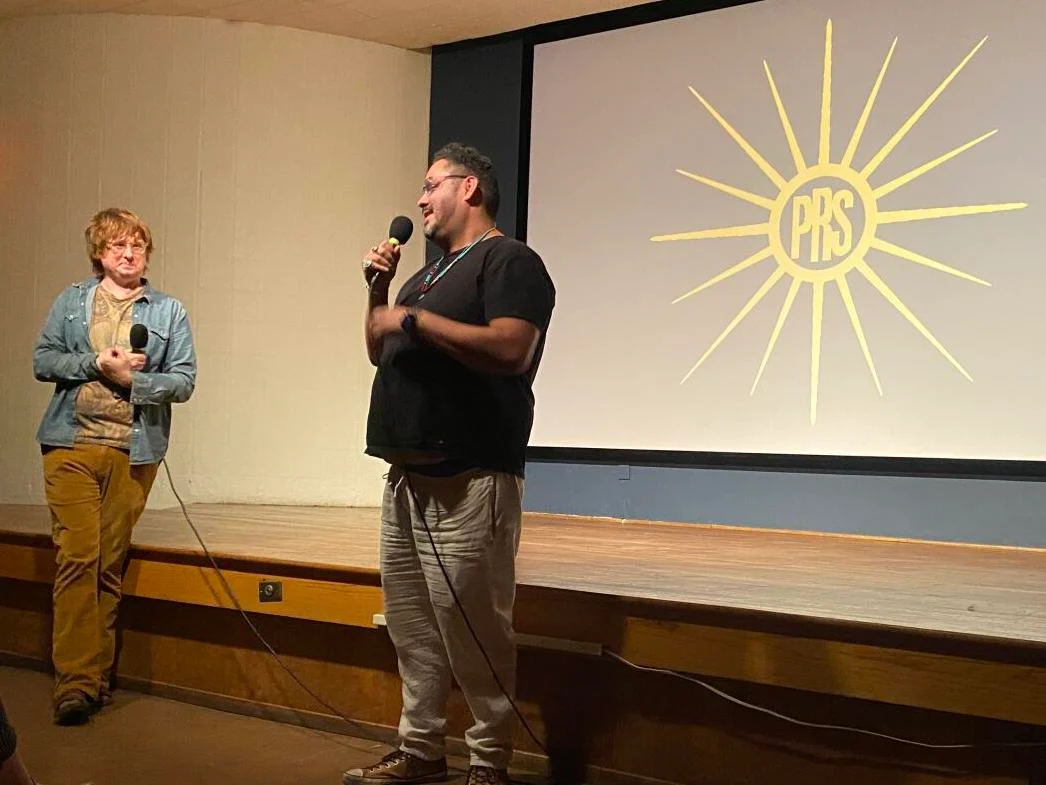
On August 14, the Philosophical Research Society (PRS) hosted a screening of 1996’s “The Celluloid Closet” directed by Rob Epstein and Jefferey Friedman. The second part of their tri-monthly event was held in Los Feliz, created and hosted by queer Latino director Gregorio Davila, which intends to show audiences the rich history, culture and artistry of the LGBTQ+ community through screenings, live performances and exhibitions.
Based on the 1981 book by Vito Russo, the groundbreaking documentary made waves by gathering footage from over a hundred films depicting the history of roles gay men and lesbians have had over time in Hollywood.
Tom Hanks, Whoopi Goldberg and Harvey Fierstein are just some actors, writers and commentators who treat audiences to funny and insightful stories in the documentary. Along with highlighting the issues of how cinema viewed sexuality, the film spans from the cruel stereotypes and how the public demonized the queer community during the AIDS outbreak to when filmmakers finally became more accepting of the community in recent years.
Before the screening began, Davila took to the front of the auditorium and asked the audience if anyone had not seen the documentary — the majority raising their hands. Davila revealed to the audience that he also shared a similar experience when he first heard about the film during its initial release in the late ‘90s.
Having just moved up to Seattle from California, Davila found out about the film during a conversation with a guy he met at a park. The next day, he went to the Broadway Cinema, a local theater, and was blown away about the amount of queer history featured, so much that he decided to watch the film two more times that same week.
“I had no idea about any of this, and it made me more comfortable to deal with coming out as a gay person, and then as a queer Latino” said Davila.
This film is what eventually peaked Davila’s interest to start making documentaries himself, his first being called “Bent Fest 2001,” which captures a five-day music festival in Seattle that featured an all queer band line-up such as Gossip, The Butchies, Traci + The Plastics and The Chromatics.
His first feature-length documentary “L.A.: A Queer History” captured the rich history of the LGBTQ+ community in Los Angeles, leading to multiple film festival awards. Davila’s latest feature-length documentary “UNIDAD: Gay & Lesbian Latinos Unidos” tells the story about the first queer Latino organization in the country that formed in Los Angeles in 1981.
Both feature-length documentaries can be found streaming on PBS.
CALÓ News spoke to Davila about how this series came to be and about his documentary work.
Davila recalled PRS reached out last year to ask for permission to screen one of his films, this led to other discussions about doing more screenings of Davila’s other works and other LGBTQ+ content.
He then pitched to PRS about doing an ongoing LGBTQ+ series that would occur every two to three months, “My idea was to not only screen films, but maybe have performances, maybe gay queer comics, you know, anything that’s sort of, encompasses what the queer diaspora is,” said Davila.
Part of PRS’s initiative was bringing on Davila for this on-going series as part of an effort in having queer content on their calendar year-round. His work highlighting Los Angeles’s queer history was something important to PRS. This falls in line with Manly Palmer Hall’s ideals of knowledge that should not be gatekept. He founded PRS in 1934.
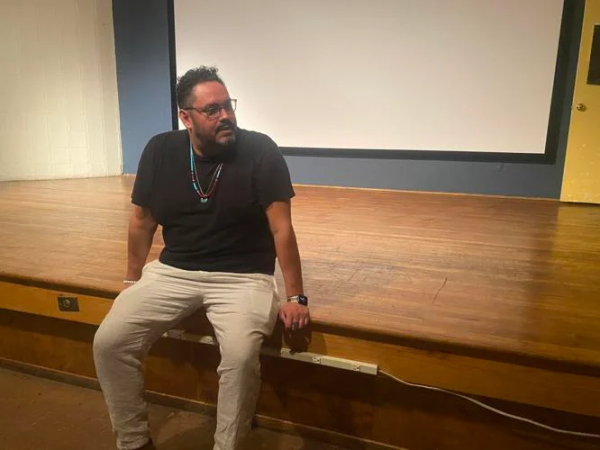

“There’s a certain tokenism thing where you’re just like, ‘Oh, just program something in Pride and then let’s move on.’ And we obviously don’t want that. (PRS) tries to be very conscious of having queer content on our calendar,” said Alex McDonald, a programmer at PRS.
Their kick-off event took place back in May with a screening of Jenny Livingston’s “PARIS IS BURNING,” a documentary based on New York City’s African American and Latinx Harlem drag ball scene during the 1980s. The series also hosted an after-party in the PRS courtyard, along with vendors from Queer Mercado, the first permanent Queer family marketplace in East Los Angeles.
Outside of this series, McDonald told CALÓ News that PRS is trying to build a community and stressed the importance of creating a home that screens queer content regularly, with the goal of having a safe space for audiences to be exposed to these films that they might not otherwise regularly.
Coming up next in the“Queer Diaspora” series will be a screening “Scream, Queen! My Nightmare on Elm Street” based on actor Mark Patton’s experience of starring in “A Nightmare on Elm Street 2: Freddy’s Revenge” while being a closeted gay man. The two-day event takes place in October with more details to come, according to McDonald.
To get more information about future events, audiences can go to the official PRS website.
Arts & Entertainment
Netflix’s ‘Outstanding’ Documentary Reveals Queer Comedy Icons’ Impact on LGBTQ+ Rights
How Queer Comics Broke Barriers & Sparked a Comedy Revolution
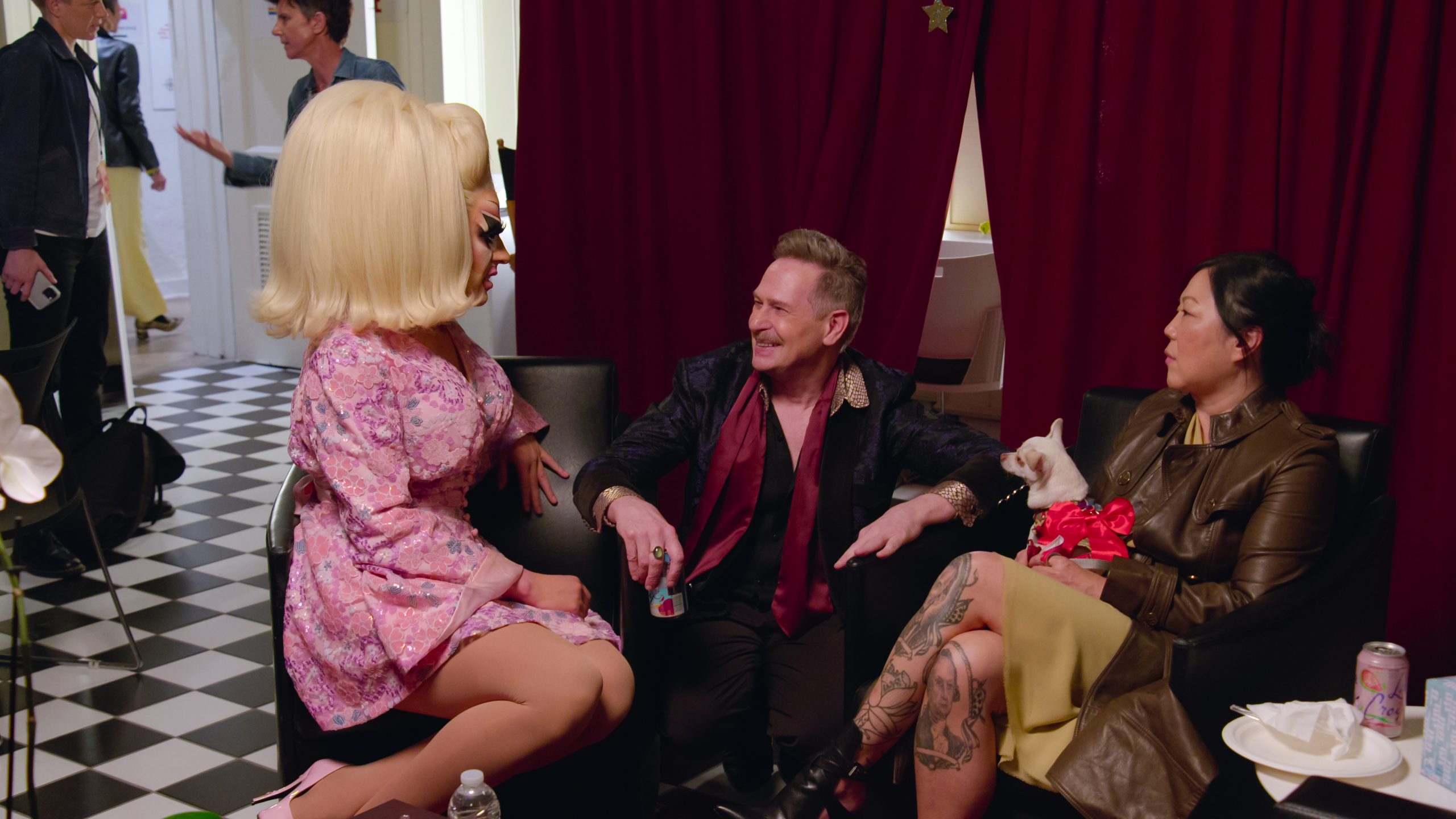
A Landmark in LGBTQ+ Entertainment
To say that the world of stand-up comedy has a long history of homophobia would be putting it mildly. Netflix’s new documentary “Outstanding: A Comedy Revolution” takes viewers on a journey through this complex history, highlighting both progress and ongoing challenges.
From Taboo to Triumph
Any queer person who has lived long enough to remember when Sandra Bernhard openly flirted with Madonna on “Late Night With David Letterman” — a deliciously transgressive pop culture moment remembered fondly in “Outstanding” — can also certainly recall the horrific anti-queer bigotry spouted by comics during the same era, just to get a laugh.
Filmmaker Page Hurwitz captures these moments, offering younger viewers a stark look at the past and a celebration of queer progress in entertainment. The film, shot over two years ago at “Stand Out,” a landmark performance at LA’s Greek Theatre, is now streaming on Netflix.
A Star-Studded Celebration
“Outstanding” features an impressive lineup of LGBTQ+ comedy icons, including Lily Tomlin, Sandra Bernhard, Wanda Sykes, Eddie Izzard, Rosie O’Donnell, Margaret Cho, Fortune Feimster, Todd Glass, Hannah Gadsby, Scott Thompson, Judy Gold, Bob The Drag Queen, and Joel Kim Booster. These performers have been instrumental in forging a new comedy landscape where queer comics can authentically share their experiences.
While the film celebrates progress, it also acknowledges ongoing challenges, calling out figures like Dave Chappelle for perpetuating harmful attitudes. However, the focus remains on the empowerment of queer voices in comedy.
More Than Just Laughs: A Cultural Shift
“Outstanding” is not merely a record of performances. It’s a sweeping look at the history of queer repression in American entertainment culture and the impact of LGBTQ+ comedians in changing societal attitudes. The documentary gives members of the queer community a chance to feel seen and represented.
Hurwitz builds her chronicle by letting the comics tell their own stories. Extensive interviews feature stars, commentators, writers, and scholars recalling their experiences growing up queer and seeing how LGBTQ+ people were portrayed in mainstream culture. These narratives are supplemented with clips from television and film, news footage, and performance excerpts that provide context for the rise of queer-centric comedy.

‘Outstanding: A Comedy Revolution’ TRIBECA FILM FESTIVAL
From Coded Characters to Out and Proud
The film traces the evolution of LGBTQ+ representation in comedy:
- Pre-Stonewall era: Coded characters like Paul Lynde, Charles Nelson Reilly, and Rip Taylor
- 1970s: Comedians like Lily Tomlin, Robin Tyler, and Pat Harrison pushing boundaries
- AIDS era: Activist comedians like Sandra Bernhard, Scott Thompson, and Margaret Cho using humor to combat backlash
- Modern day: A diverse generation including Eddie Izzard, Wanda Sykes, Hannah Gadsby, Bob the Drag Queen, and Joel Kim Booster
Spotlight on Unsung Heroes
“Outstanding” elevates lesser-known trailblazers, particularly Robin Tyler. After becoming the first queer comic to come out publicly on national television in 1978, Tyler faced career setbacks but became a pivotal figure in LGBTQ+ rights activism.
Tyler organized and produced the first three national marches on Washington for LGBTQ+ rights, including the 1987 “mock wedding” of hundreds of queer couples — the largest act of civil disobedience by queer protesters in U.S. history. Her legacy as a queer activist warrior was firmly cemented when, alongside partner Diane Olsen, she filed the first lawsuit against California for the right to be married, leading to a seven-year legal battle that helped pave the way for nationwide marriage equality.
The Power of Visibility
Speaking to the Los Angeles Blade, Tyler reflected on her journey: “The best thing that happened to us is that we didn’t get picked up, because then we could go and be free. It takes your life away, having to live a lie. We gained our freedom and lost nothing.”
This sentiment encapsulates the documentary’s central message: without being visible, we are powerless — which is why the forces against us are so fixated on erasing us from view.
A Celebration of Community and Progress
“Outstanding” not only makes us laugh but also showcases the camaraderie among these comedic revolutionaries. United by their refusal to stay “inside the lines” drawn by a bullying profession or an intolerant culture, these performers have achieved a shared victory that extends beyond individual success to the entire queer community.
The palpable sense of camaraderie among these comedic revolutionaries — for, true to its title, Hurwitz’s documentary makes it clear that they were and are exactly that — helps to underscore the feeling that their biggest victory is a shared one, which eclipses their individual success and extends to the entire queer community.
Why “Outstanding” Matters
This Netflix documentary is more than just entertainment; it’s a vital piece of LGBTQ+ history. By illuminating the inside forces of queer comedy across the years, it offers both a celebration of progress and a reminder of the ongoing fight for equality.
A Must-Watch for Pride and Beyond
“Outstanding: A Comedy Revolution” is essential viewing for Pride Month and anyone interested in the intersection of comedy, LGBTQ+ rights, and cultural change.
It’s a testament to the power of laughter in driving social progress and a victory lap for the entire queer community. It feels like our victory lap, too.
Film
Los Angeles Times Short Docs: “Stud Country”
The Los Angeles Times Short Docs program celebrates filmmaking with a West Coast perspective presenting undiscovered stories
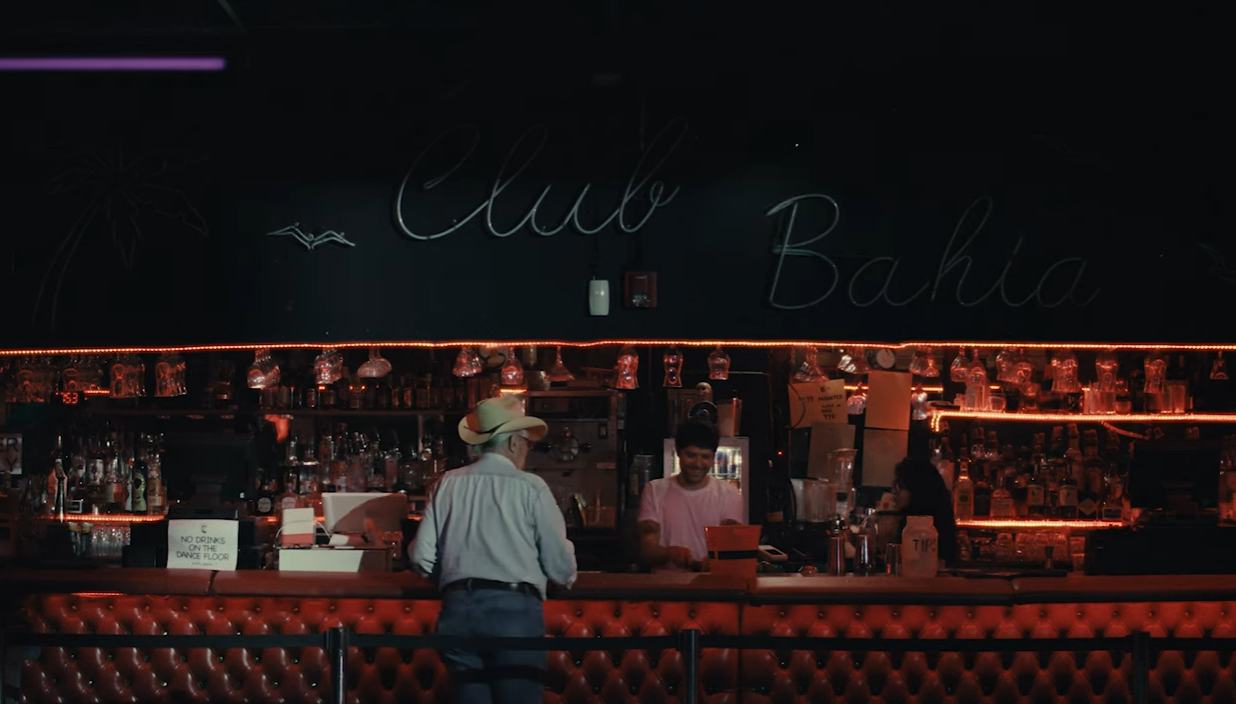
(Los Angeles Times) | LOS ANGELES – The Los Angeles Times released “Stud Country,” a short documentary about a Los Angeles-based queer country western line dancing event that was created to preserve the city’s little known 50+ year queer line dancing tradition. Despite its success and fiercely committed community, the event is set to lose its venue due to gentrification.
Directed by Lina Abascal and Alexandra Kern, the film is part of the L.A. Times Short Docs program.
Short Docs celebrates filmmaking with a West Coast perspective. We seek bold voices who break with convention and present undiscovered stories that challenge, move and inspire audiences.
Watch more Short Docs here: (Link)
WATCH:
Film
Oscar nominations: the good, the bad, and the predictable
This year’s Oscar ballot is more notable for its snubs than for its inclusions, and that doesn’t just apply to the LGBTQ+ community
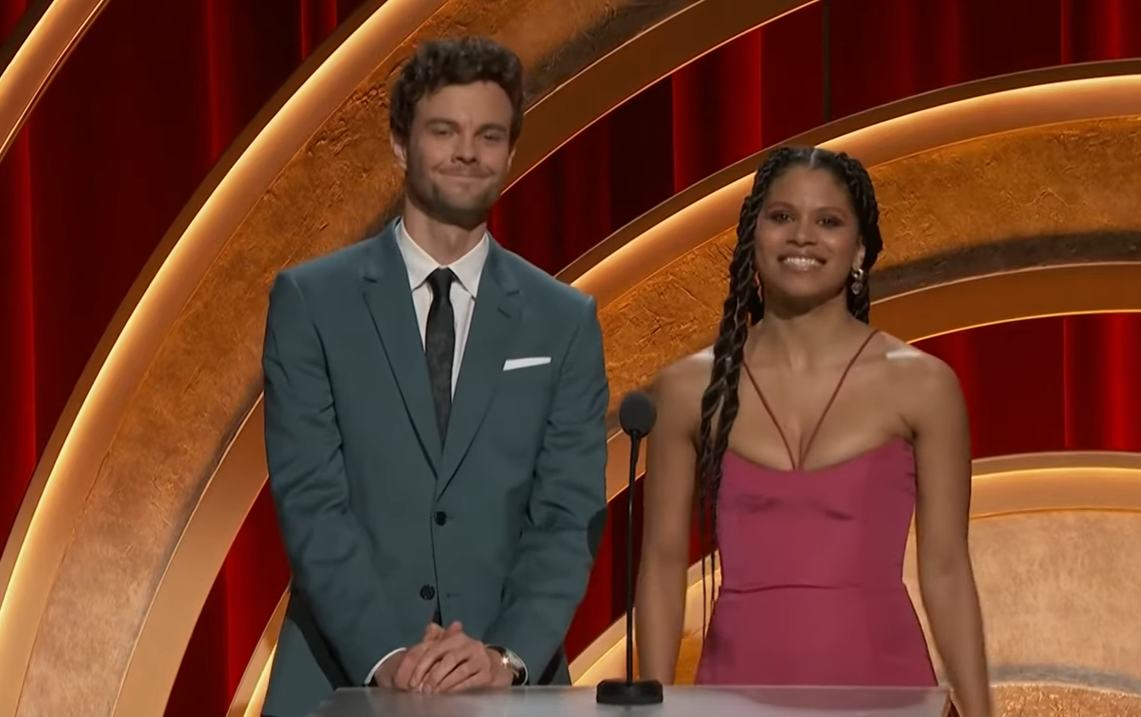
BEVERLY HILLS, Calif. – 2023 was a very queer year at the movies, but you might not be able to tell that from looking at the nominations for the 96th Annual Academy Awards (aka the Oscars), which were announced early on Tuesday morning at the Motion Picture Academy’s Samuel Goldwyn Theater in Beverly Hills.
It’s true there were a few significant nods included for queer actors and/or actors in queer roles, as well as for films which included queer characters or subject matter and/or the creatives behind them, and we don’t want to seem unappreciative of that progress, even if we suspect it might be due to the Academy’s new guideline that a film must meet at least two out of four standards of representation and inclusion to qualify for nomination, implemented this year for the first time; even so, it’s hard not to feel a bit like an afterthought when so many queer movies, performers and creators that stood out among the year’s crop of releases – many of which scored recognition from multiple other awards bodies – have been left out of the lineup.
Indeed, it can almost be said that this year’s Oscar ballot is more notable for its snubs than for its inclusions, and that doesn’t just apply to the LGBTQ+ community.
The most egregious omission, in fact, is also the most predictable: the failure of Academy voters to nominate Greta Gerwig as Best Director for her industry-shaking efforts at the helm of “Barbie,” a film which managed to jump start the big screen’s box office by bringing audiences back to theaters in droves and sent more shock waves resonating through our culture than all the year’s other movies combined.
Though the movie – which earned eight nominations in total, including acting nods for supporting players Ryan Gosling and America Ferrera – made the cut for Best Picture, and Gerwig was nominated in the Best Adapted Screenplay category (alongside partner and now-husband Noah Baumbach), her name is glaringly absent from the list of contenders.
Add to this the equally perplexing snub of Margot Robbie – who was also an Executive Producer of the film – as Best Leading Actress, and it’s difficult not to see an unspoken reprimand being delivered to two strong women for daring to shake up the industry’s status quo by building a blockbuster movie hit around an unapologetically feminist core.
Still, with its eight nods, “Barbie” – which topped our list of the Best Queer-centric Films of 2023 – made a strong showing, though other of the year’s biggest titles received more. “Oppenheimer,” Christopher Nolan’s existential epic about the creator of the atomic bomb, unsurprisingly led the pack with 13, followed by Yorgos Lanthimos’ “Poor Things” with 11 and Martin Scorsese’s “Killers of the Flower Moon” with 10. Each of these four films are competing as Best Picture – and all have a strong chance at the trophy, though “Oppenheimer” is shaping up to be a sweeping juggernaut for the season.
Also nominated in the category are Bradley Cooper’s Bernstein biopic “Maestro” and Cord Jefferson’s late-season under-the-radar satire “American Fiction,” both of which include significant queer narratives in their storylines.
Expanding on the “good news” from the Oscars announcement, the Best Actor category includes a nomination for out gay actor Colman Domingo for his star turn as the titular out gay Civil Rights hero in “Rustin,” as well as for Cooper’s performance as the bisexual Bernstein in “Maestro.” The rest of the field is made up of Cillian Murphy (“Oppenheimer”), Paul Giamatti (“The Holdovers”), and Jeffrey Wright (“American Fiction”).
Notably absent from the race is out Irish actor Andrew Scott, who was considered a strong front runner for his leading turn in out British filmmaker Andrew Haigh’s “All of Us Strangers.”
For Best Leading Actress, a nomination went to queer ally Annette Benning for playing the title role in “Nyad,” as well as to Carey Mulligan for her portrayal of Bernstein’s loyal wife in “Maestro.”
Additionally, Lily Gladstone made history by becoming the first Indigenous American to be nominated in the category for “Killers of the Flower Moon,” though she has stated in interviews that she identifies as “middle-gender”.
Rounding out the race are Sandra Hüller (“Anatomy of a Fall”) and Emma Stone (“Poor Things”); at this point, it’s probably too early to predict the winners – there are a lot of politics involved in the final stretch before the big night – but, in this category, it’s hard to imagine anyone but Stone taking the prize.
In the supporting categories, iconic out actress Jodie Foster scored for her role as the title character’s trainer and BFF in “Nyad,” and Danielle Brooks made the cut for her show-stealing performance in the queer-inclusive musical “The Color Purple”). Their competition comes from Ferrera, Emily Blunt (“Oppenheimer”), and Joyce Da’Vine Randolph (“The Holdovers”).
On the Supporting Actor side, Sterling K. Brown was nominated for playing the lead character’s recently-out gay brother in “American Fiction,” while Gosling’s masculinity-skewing performance was “Kenough” to score him a nod for “Barbie.”
The other contenders are Robert DeNiro (“Killers of the Flower Moon”), Rober Downey, Jr. (“Oppenheimer”), and Mark Ruffalo (“Poor Thiings”); look to Downey as the probable winner, but Ruffalo’s against-type turn could pull off an upset.
It would be easy to go down the list and point out all the films and people that were unexpectedly passed over for this finals round in Hollywood’s Awards Sweepstakes – the most obvious, apart from Gerwig and Robbie, are Leonardo DiCaprio’s lead performance in “Killers of the Flower Moon”), but we can’t avoid mentioning the shutout of overtly queer standout movies like “All of Us Strangers” or “Saltburn” (from filmmaker Emerald Fennell, also part of the cadre of female power players behind “Barbie”), which failed to score nods in any category despite multiple nominations and wins from other awards bodies.
Yet, looking to the positive, despite the disappointment of so many surprise omissions, there are some strong steps forward represented for the queer community in this year’s nominations, with both Domingo and Foster standing within reach of becoming the first openly queer actor to win an Oscar for playing an openly queer character.
As noted above, Gladstone could also become the first Indigenous American to win a Leading Actress trophy, and though it wouldn’t be a first, a win for either “Maestro” or “American Fiction” would add another film with strong queer storylines to the list of Oscar’s Best Pictures.
Another milestone worth mentioning: with his nomination as Best Director for “Killers of the Flower Moon,” Martin Scorcese has become the living filmmaker with the most Oscar nominations (10), and second only to William Wyler (12) for the most of all time.
That may not be a “queer” record, but it’s definitely a cool one.
For a complete list of the nominations, visit the Oscar website.
Film
Some of 2023’s most hotly anticipated queer films come to AFI Fest
Bradley Cooper’s Maestro & Andrew Haigh’s All of Us Strangers lead the LGBTQ+ themed lineup at the Hollywood-based festival

LOS ANGELES – L.A.’s most prestigious film festival returns to Hollywood’s TCL Chinese Theatres next week with a potent cinematic slate from across the world that will once again kick the movie industry’s awards season into high gear.
Running for a heady five days from October 25 to 29, AFI Fest will this year present more than 140 titles, including the official Best International Feature Oscar submissions from a whopping 20 countries. In addition to three red carpet premieres on Hollywood Boulevard, the festival will also include special screenings of a number of presumed awards contenders, including The Bikeriders (starring Austin Butler and Tom Hardy as motorcycle club honchos in ’60s Chicago).
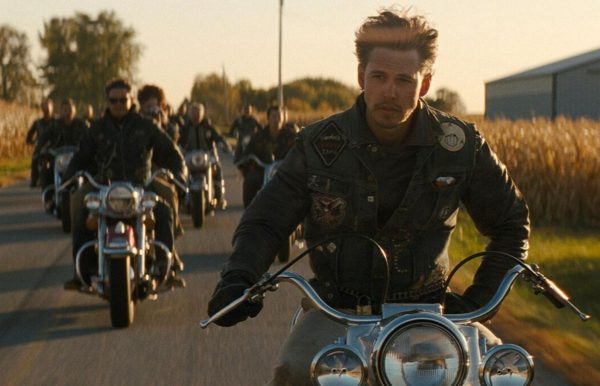
AFI Fest launches this year with the October 25 red carpet world premiere of Leave the World Behind, the apocalyptic thriller from writer and director Sam Esmail (Mr. Robot) starring Julia Roberts and Ethan Hawke as a couple who rent a luxury home for a weekend with their kids, only for the bliss to be interrupted by the appearance of a man (Moonlight’s Mahershala Ali) and his daughter Ruth (Myha’la) who claim to be the home’s owners, bearing news of an impending global cyberattack that will end the world as we know it.
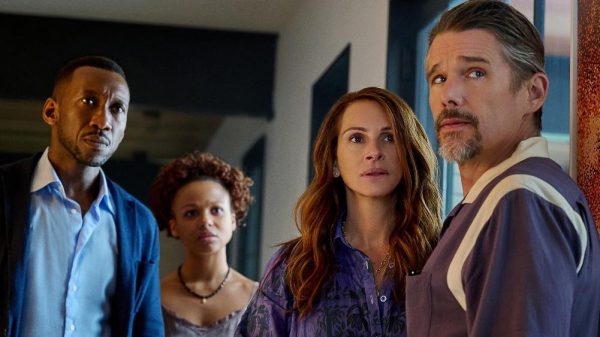
Closing the festival on October 29 will be the red carpet Los Angeles premiere of Maestro, starring Bradley Cooper as composer and conductor Leonard Bernstein and Carey Mulligan as his wife, actress Felicia Montealegre. Cooper also directed the film, his follow-up on that front to 2018’s A Star is Born. Early reviews have praised the film for its complex depiction of Bernstein’s happy marriage to a woman despite his strong and active same-gender attraction, and Oscars oddsmakers have already put Cooper in contention for both Best Actor and Best Director.
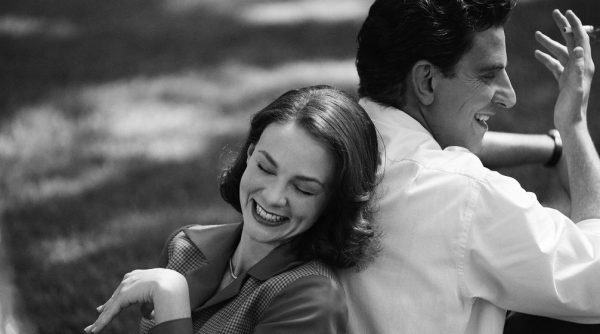
The other very buzzy LGBTQ+ title gracing this year’s AFI Fest is Andrew Haigh’s All of Us Strangers, starring Andrew Scott as a Londoner who meets and falls for a mysterious neighbor (last year’s Best Actor Oscar nominee Paul Mescal), spawning vivid memories of his long-deceased parents (played by Claire Foy and Jamie Bell). Haigh is widely revered in the queer cinema world for directing 2011’s Weekend, one of the most highly regarded gay movies of all time. On the Oscar front, Haigh and virtually his entire All of Us Strangers cast seem to be in the running as possible contenders. The film screens on October 28, to be followed by a Q&A with Haigh.
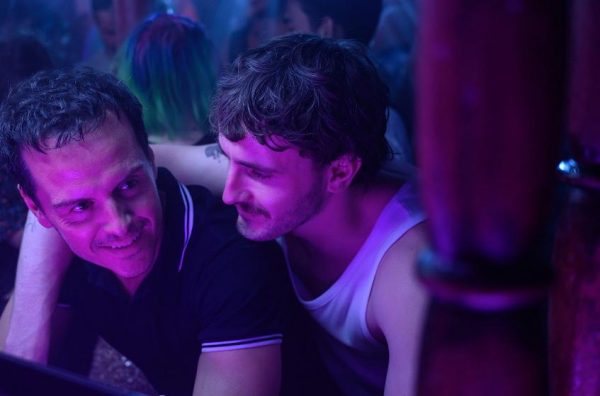
Another queer AFI Fest film that’s already grabbed a lot of praise at festivals around the world this year comes from France: Orlando, My Political Biography. Using Virginia Woolf’s 100-year-old novel Orlando: A Biography as a springboard, director Paul B. Preciado gathers 26 trans and non-binary people aged 8 to 70 to recite, reenact, and challenge Woolf’s celebrated text. Each embodies the character of Orlando while sharing stories about their lives and relationships to the novel. The innovative film, which took the Teddy Award for Best Documentary at this year’s Berlin International Film Festival, screens on October 27.
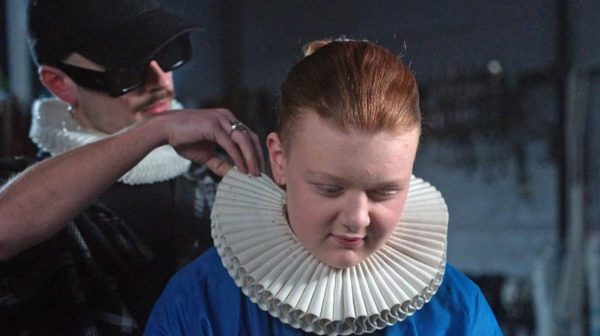
Also defying normal structural expectations is the Greek comedy The Summer with Carmen, focusing on a film within a film as conceived by best friends Demos and Nikitas at Athens’ queer nude beach. Mining the exploits of a previous crazy summer for material, the two concoct a romantic comedy script for Nikitas’ feature directing debut. The Summer with Carmen will screen on both October 26 and 29, with a conversation with director Zacharias Mavroeidis following the latter screening.
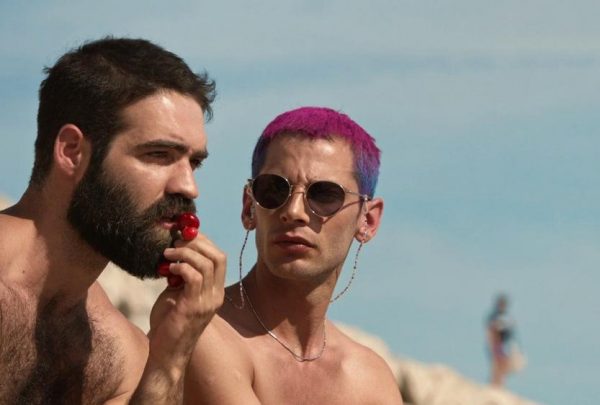
From Spain comes the sensitive 20,000 Species of Bees, which explores an eight-year-old’s gender identity crisis during an uncertain summer family vacation in a sleepy Basque village. As lead character Coco, newcomer Sofía Otero received the Silver Bear for Best Leading Performance at the Berlin Film Festival earlier this year. The film screens on October 29.
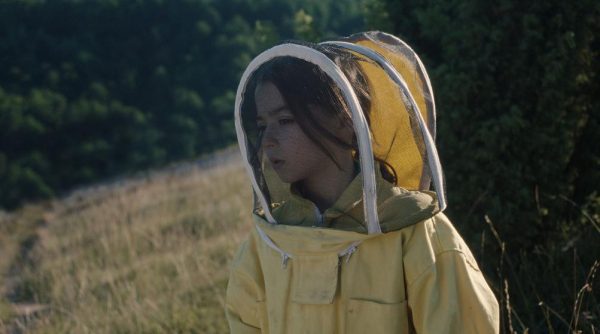
While not specifically LGBTQ+-themed, two feature-length documentaries include lesbian subjects: Going Varsity in Mariachi, which follows the various members of a high school mariachi team in southern Texas, two of whom happened to be in a girl couple; and Smoke Sauna Sisterhood, which focuses on a group of women, some lesbian, who periodically gather for sauna and sisterhood in a forest in southern Estonia.

This year’s guest artistic director at AFI Fest is Barbie director Greta Gerwig, who’s chosen five film classics to be part of the festival. Two of these are queer favorites: the 1979 Bob Fosse biopic All That Jazz, and Pee-wee’s Big Adventure, which actually had its world premiere at the Chinese Theatre in 1985.
As usual, a good number of the excellent short films screening at AFI Fest also have queer themes. From Belgium comes Beyond the Sea, about the last performance of an aging drag queen, while Skin (winner of the Academy of Motion Picture Arts and Sciences’ Student Academy Award in the Alternative/Experimental category) follows a woman’s transformation as she sheds her skin to reveal her true identity; both screen on October 26 as part of Shorts Program: Live Action 1.
The next day on October 27, Shorts Program: Documentary 1 will include Merman, which focuses on nurse, leather enthusiast, and civil rights advocate Andre Chambers; and Alpha Kings, which reveals the homoerotic world of a group of young cam guys in suburban Texas. Also on October 27, Conservatory Showcase 5 will include Some Kind of Paradise, which follows a Grindr match in small-town Arkansas between a local and an actor who’s come there to shoot a film.
For more info about AFI Fest 2023 and to book tickets, go to fest.afi.com.
Film
Brilliant film documentary with the thumping power of women
The original taiko was forbidden to women. In the 20th century, individual woman artists stepped up and became masters of the artform

Exclusive showings of Finding Her Beat playing now and this week in Gardena
GARDENA, Calif. – It is a movie without the color pink in sight. There are no plastic boxes or beaches full of Kens. There is, however, plenty of bass pulsing music.
While artistically the parallel of the new documentary Finding Her Beat, and the summer hit Barbie, ends there, the soul of both films are in surprising lock step.
One is about an idealistic doll of a woman suddenly aware of the patriarchal oppression in the world that created her. In the other, a group of women are fully aware of the culture of men that has dominated them. In Barbie, the core character comes back to pull a pack of women together, and as a collective, demonstrate their real-world power.
Finding Her Beat, co-directed by Dawn Mikkelson & Keri Pickett, does exactly the same thing.
With a long and rich history in Japan and other parts of Asia, taiko drumming dates back to the 6th century CE. The huge drums with their resounding bass were originally used for communication, military action, theatrical accompaniment, religious ceremony, and concert performances.
Used on the battlefield to signal commands, taiko drumming motivated troops, and intimidated the enemy. Taiko drums were also used in religious ceremonies to invoke the gods and spirits, and to celebrate festivals and holidays. In the 17th century, they became popular in the kabuki theater, where they were used to create dramatic effects.
In the 20th century, taiko drumming underwent a revival, and began to be performed outside of Japan. Taiko groups were formed in the United States, Europe, and Australia, and taiko drumming became increasingly popular as a form of performance art. The unique music was used in such popular offerings such as Cirque di Sole and films like The Karate Kid.
The original taiko was forbidden to women performers. In the 20th century, individual woman artists stepped up and became masters of the artform. They had no unity with one another, however, each getting recognition in their own musical community. Until Jennifer Weir stepped in.
Finding Her Beat tells how, in the midst of a frozen Minnesota winter, Jennifer assembled the world’s greatest female taiko drummers in a bold effort to claim a cultural spotlight that has historically been reserved only for men. The rhythm revolution she created included the major rock stars from the world of taiko: Tiffany Tamaribuchi, Kaoly Asano, Chieko Kojima, and Megan Chao-Smith.
The challenge of bringing taiko divas into one exposition required thorough and grueling rehearsals. In the end, Jennifer was able to weave together their disparate voices and styles as vulnerability, pain, and joys were shared in poignant moments in the film. Bonds of friendship form as these talented women navigate through differences in culture, age, language, and performance styles. In Finding Her Beat, their story has become much larger than taiko. It becomes a story of women rising against a patriarchal backdrop, finding the power of sisterhood, and creating history through the drama of musical expression.
Through the perspective of the five main artists, Finding Her Beat explores the challenges professional marginalized gender artists face. It launches the burgeoning hope that the historic event the film presents marks the beginning of a new era of taiko. – for everyone. In silence and thundering percussion, the film organically unfolds in the lived moments of these artists.
Listen to Jennifer on the Rated LGBT Radio podcast here.
The exclusive presentation in the Los Angeles area is at the Gardena Cinema October 20-26 with a question and answer period of the showing each night with the filmmakers.
Made by a predominantly female/non-binary, largely Asian-American and LGBTQ+ filmmaking team, Finding Her Beat is made for, and best enjoyed on the big screen. Find the theatrical trailer here.
With Finding Her Beat, taiko again returns to the battlefield, this time it is not physical warfare, but against the oppression of female talent and to elevate representation effectively, and forever.
Get your tickets and further information here.
Related:
*****************************************************************************************
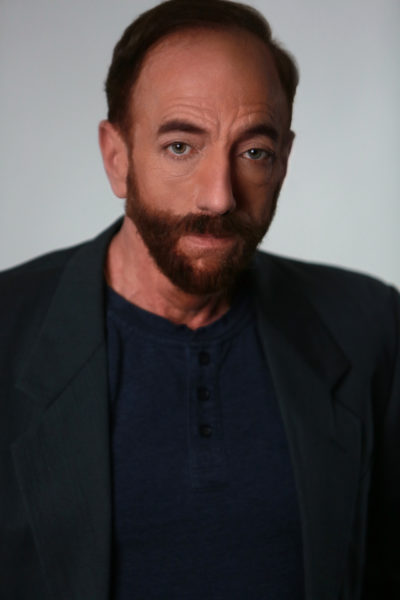
Rob Watson is the host of the popular Hollywood-based radio/podcast show RATED LGBT RADIO.
He is an established LGBTQ columnist and blogger having written for many top online publications including The Los Angeles Blade, The Washington Blade, Parents Magazine, the Huffington Post, LGBTQ Nation, Gay Star News, the New Civil Rights Movement, and more.
He served as Executive Editor for The Good Man Project, has appeared on MSNBC and been quoted in Business Week and Forbes Magazine.
He is CEO of Watson Writes, a marketing communications agency, and can be reached at [email protected]
Film
Trans men, butch dykes & gender-nonconforming heroes in cinema
Masc, presented by the UCLA Archive and The Andrew J. Kuehn Jr. Foundation, will be screening at UCLA’s Billy Wilder Theater Aug. 19–25, 2023
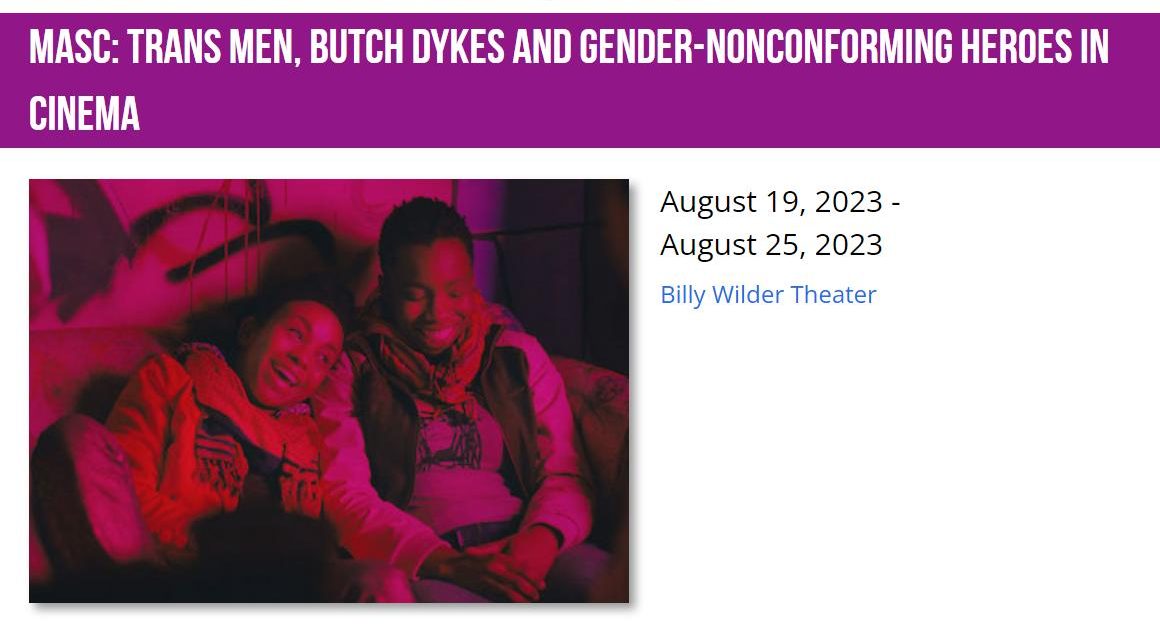
LOS ANGELES – A film series being presented this month, a part of Outfest UCLA Legacy Project Screening Series, Masc spotlights a rich tapestry of stories of the courageous lives of trans men, butch lesbians, gender outlaws, and gender non-conforming rebels.
This program—co-curated by writer-archivist-filmmaker Jenni Olson and film critic Caden Mark Gardner—surveys six decades of cinema history in search of authentic, complex representations of masculine identity that exist outside the realm of cisheteronormative masculinity. Featuring tales of youth and adulthood, of obstacles and allies, this series presents multifaceted narratives of unforgettable subjects and characters.
Masc, made possible by the UCLA Archive and The Andrew J. Kuehn Jr. Foundation, will be screening at UCLA’s Billy Wilder Theater Aug. 19–25, 2023. The event and programs are free.
Billy Wilder Theater is located at 10899 Wilshire Blvd., Los Angeles, inside the Hammer Museum.
Programs & Events
● Aug. 19, 7:30 p.m.
No Ordinary Man (2020)
Trans jazz musician Billy Tipton lived in stealth for much of his life. After his 1989 death from health complications, his trans identity was revealed and a tabloid media circus against him and his family followed. Filmmakers Chase Joynt, Aisling Chin-Yee and Amos Mac return to Tipton’s story, enlisting transmasculine performers as well as trans historians to rehabilitate and reconsider Tipton’s life story and critique how the mainstream media often misunderstands trans masculinity.
Chavela (2017)
A tremendous portrait of legendary Costa Rican-Mexican lesbian singer Chavela Vargas. The world-famous performer was a gun-toting, tequila-loving, macho butch rumored to have had dalliances with Frida Kahlo and Ava Gardner. From being the toast of Mexico City in the 1960s and ’70s to falling into obscurity in the 1980s, the film follows her return to the world stage as muse to Pedro Almodóvar — culminating in her Lifetime Achievement Award at the Grammys in 2007. Friends, colleagues and ex-lovers discuss her legacy and the film is packed with amazing archival material. A joy to watch from first frame to last.
● Aug. 20, 7:00 p.m.
Southern Comfort (2001)
This acclaimed documentary follows the story of Robert Eads, a trans man dying of ovarian cancer. While indisputably a victim of systemic transphobia and medical malfeasance from the American healthcare system, Eads’ status as a trans elder among his chosen family shows him as the beating heart of an incredibly warm and life-affirming community. Southern Comfort, named for the then Atlanta-based national trans conference, presents the common struggles and common understandings among trans men in the 1990s with clear-eyed empathy by filmmaker Kate Davis.
Vera (Brazil, 1986)
Based on the life of Brazilian poet Anderson Bigode Herzer who committed suicide at the age of 20, this intense drama tells the story of Bauer (Ana Beatriz Nogueira), a transman who navigates a difficult life in an orphanage before finding love with a young librarian, Clara (Aida Leiner). A sympathetic professor sees his talent as a poet, but Bauer (the film’s title is his deadname) is mostly alone and misunderstood — proclaiming: “I’m not what everyone thinks I am. You hear me? I’m different. I’m something else.” One of the earliest portrayals in cinema of a transmasculine character.
● Aug. 21, 7:30 p.m.
Maggots and Men (2009)
A work that conjures the old Soviet film technique and similar pastiche works by Guy Maddin, Cary Cronenwett’s spirited revisionist period film places trans masculine bodies at the radical heart of the 1921 Kronstadt Rebellion. Creatively reimagining the uprising, the story contrasts a performative theater troupe that narrates moments of the story with scenes of the rebellion against the autocracy of the Bolshevik Party. Featuring the largest cast of trans actors in a film, Maggots and Men plays with cinema and history to tell a gender defiant story that is both playful and subversive.
Pariah (2011)
Dee Rees’ tender feature debut is a rich and vulnerable queer coming of age story about an African-American butch lesbian having to face familial homophobia and the realization that the people she loves can hurt and disappoint her. Alike is a promising poet and good student who is hiding her sexual identity from her parents. When she is forced to make friends with a girl from church, she develops a serious crush that feels like the beginning of her sexual awakening and her first taste of true love. Adapted from her award-winning short, Rees’ film deftly and compassionately captures the fraught and transformative experience of a gender non-conforming adolescence.
● Aug. 24, 7:30 p.m.
Masc—The Shorts + The Aggressives
Bookended by the uplifting Pixar-esque children’s film Pete, star-studded heart-wrenching drama Vamanosand quirky comedy Monsieur le Butch — this celebration of gender non-conforming heroes also showcases a powerful batch of cinematic rarities starring the butch dykes and transmasc pioneers of the early 1990s who blazed the trail for us today (plus a rare 1960s butch home movie treat!). Followed by an onstage discussion with series co-curator Jenni Olson in conversation with special guests discussing the complex history of butch and transmasc representation on screen.
Pete (2022)
A heartwarming animated short about gender identity, Little League baseball, the people who inspire change by being themselves, and the superheroes who allow that change to happen.
7 mins. Director: Bret Parker
Adventures with Tony (1960s)
A remarkable fragment of home movie footage featuring a young butch dyke on vacation with her father in New Jersey. A rarity from the Jenni Olson Queer Film Collection at the Harvard Film Archive.
1 min. Director: unknown
Stafford’s Story (1992)
Stafford’s Story tells about an encounter at a sex club. New digital scan by UCLA Film & Television Archive as part of the Outfest UCLA Legacy Project.
3 mins. Director: Susan Muska
Max (U.S/Germany, 1992)
Pioneering transman Max Wolf Valerio talks about his life and the experience of transitioning in this groundbreaking short, one of the first portraits of a trans man on film.
20 mins. Director: Monika Treut
Ifé follows a day in the life of a Black French lesbian in San Francisco.
5 mins. Director: Lenn Keller
Trans (1994)
A playful portrait of trans man Henry. New digital scan by UCLA Film & Television Archive as part of the Outfest UCLA Legacy Project.
10 mins. Director: Sophie Constaninou
Sometimes (1994)
A concise poetic summary of butch identity — an early short by acclaimed essay filmmaker and Masc series co-curator Jenni Olson.
1 min. Director: Jenni Olson
Vámonos (2015)
Vico Ortiz (Our Flag Means Death) and Jessica Camacho (All Rise, The Flash, Watchmen) co-star in this beautiful story about what it looks like to show up as an ally for our gender non-conforming loved ones.
13 mins. Director: Marvin Lemus
When Jude ends up unexpectedly living at home in their 30s, they must deal with a lovingly opinionated Jewish mother who doesn’t quite get the whole “trans thing.”
12 mins. Director: Jude Dry
The Aggressives (2005)
Shot over the course of 1997-2004, this documentary is an incredible snapshot of a vibrant array of butches, studs, and masc folks of color from the New York City ballroom and nightlife scene who are claiming their own space and identity. The film offers profiles of six ‘Aggressives’ or ‘AGs’, including trans actor and activist Marquise Vilson, on them and as they speak about their lives, it becomes clear where language fails to fully capture each individual’s lived experience and nuanced gender identity.
● Aug. 25, 7:30 p.m.
Lifetime Guarantee: Phranc’s Adventure in Plastic (2001)
Virtually unseen for the past 20 years, this heartwarming documentary about legendary Jewish butch lesbian folk singer Phranc is an irresistible portrait of a gender non-conforming hero navigating a world of Southern California straight lady homemakers while working her way to the top as a Tupperware salesperson. The film earned acclaim and awards on the film festival circuit, including Audience Awards at Outfest and SXSW and a rave review in Variety describing Phranc as a “1950s sitcom-dad-styled androgyne hawking kitchenware to housewives.”
Shinjuku Boys ( U.K., 1995)
An amazing mid-1990s snapshot of AFAB (assigned female at birth) gender identity in Japan. Tatsu, Gaish and Kazuki pass as men and work as hosts at Tokyo’s New Marilyn Club, a nightspot where straight women spend time with the charming onabe (an expansive term that can encompass both butch lesbians and trans men). Tatsu is a trans man who lives with his girlfriend, Tomoe. Gaish is a tough-talking “in-between” heartbreaker with a string of girlfriends. And Kazuki lives with Kumi, a trans woman nightclub dancer. The suave trio speak frankly to the camera about sex, queerness, trans identity and masculinity.
Film
August at 22; film for young women who gave up their ‘Barbies’
August is the tale of a young woman thrown into a sea of relationships, their complexities and the discovery of her own identity

HOLLYWOOD – Greta Gerwig’s Barbie may have bathed the world in translucent pink, but its cultural import is so much more. As protesting conservatives can attest, it pointed out that it is imaginable to conceive of a world effectively and wonderfully run by women rather than men.
While this has people like Ted Cruz and Ben Shapiro clutching their proverbial pearls (Sorry men for the non-butch reference. Sorry, not sorry.), it makes the spotlight on women “doing it for themselves” even more delightful.
Enter the new film August at twenty-two launching across on-demand and digital platforms today. This 84 minute tour-de-force was created in front and behind the camera by a talented team of queer female storytellers. Gerwig would be proud, as would Sofia Coppola and Lena Dunham.
Ted Cruz, maybe not so much, but then it is hard to imagine him having the critical thinking and thought process to handle an independent film.
August at twenty-two reflects the early twenties lives of its creators. Written by and starring Ali Edwards, it was directed by Sophia Castuera in her directorial debut.
Castuera says of the material, “Our hope is that this film transports you back to your own life at “twenty-two” just like it did for me. She’s (Cal, the protagonist) a queer woman with complex feelings for those around her. I certainly knew that feeling. And even beyond her queerness, I felt seen in Cal’s inability to separate friendships from romance and intimacy. I wanted what she craved too, and Ali’s writing succinctly touched a nerve with me, in a meaningful and confronting way. As a director, it excited me that Cal was not perfect.” She adds, “Ultimately, this story became bigger than our team could imagine. It was no longer just about telling Cal’s specific story, or making a stamp on coming-of-age and LGBTQ+ stories. While on set with a fully female-identifying crew, most of us working on our first feature, we realized something: this film was for young women and queer folks who wanted to do the very thing we managed to do in three weeks on the streets of New York’s August. We wanted to show them that they can create art that tells their unique stories in the hopes that it reaches a wider audience.”
August is the tale of a young woman thrown into a sea of relationships, their complexities and the discovery of her own identity as it is molded by her desires, priorities and expectations. Cal, played by Edwards, is a floundering actress who has to deal with the fact that her childhood soulmate, Jacob, now has a serious girlfriend. Cal’s acceptance of the new relationship veers into uncharted territory as the friendship between the two women becomes complicated and complex, challenging Cal’s focus, identity and the other relationships in her life.
To be fair, there is nothing remotely similar to the aesthetics between August and Barbie. If however, a member of their collective audiences has ever been lost, confused, seeking love, community and purpose, they might find synergy within the hearts of the protagonists of each film, albeit one plastic, and one very real.
You’ve likely already seen Barbie, so catch August today! Streaming on all on-demand platforms.
Related:
“august at twenty-two” Vudu: (Link)
“august at twenty-two” iTunes: (Link)
Trailer:
"august at twenty-two" Trailer from Lady Parts Productions on Vimeo.
*****************************************************************************************

Rob Watson is the host of the popular Hollywood-based radio/podcast show RATED LGBT RADIO.
He is an established LGBTQ columnist and blogger having written for many top online publications including The Los Angeles Blade, The Washington Blade, Parents Magazine, the Huffington Post, LGBTQ Nation, Gay Star News, the New Civil Rights Movement, and more.
He served as Executive Editor for The Good Man Project, has appeared on MSNBC and been quoted in Business Week and Forbes Magazine.
He is CEO of Watson Writes, a marketing communications agency, and can be reached at [email protected] .
Film
APLA Health hosts private screening of ‘Commitment to Life’ doc
“Commitment to Life” is a story of unwavering bravery in the face of death. It reconstructs HIV’s devastation & those who rose to fight it
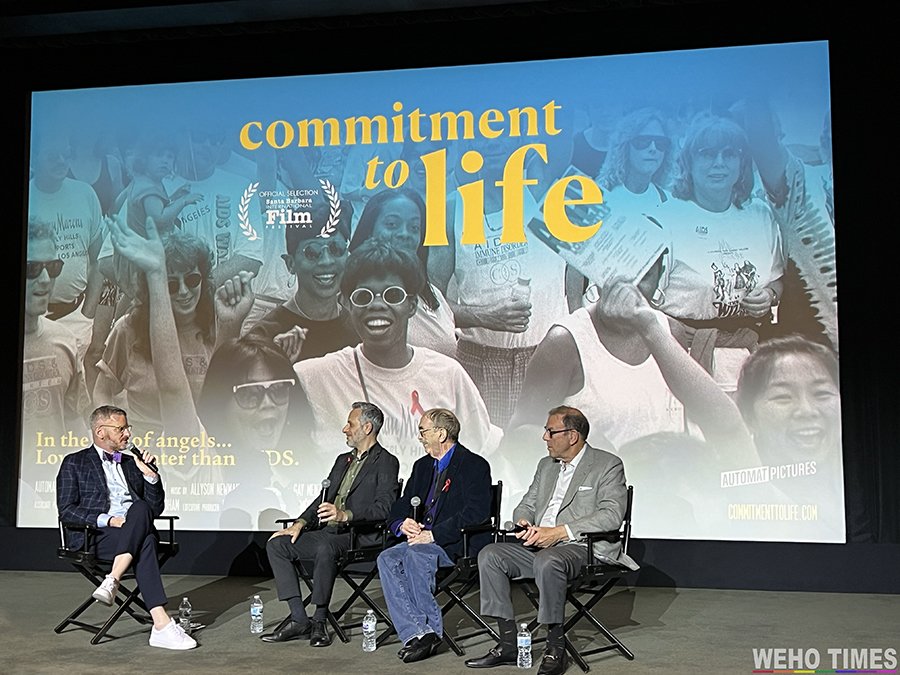

By Paulo Murillo | WEST HOLLYWOOD – APLA Health hosted an exclusive private screening of the feature documentary “Commitment to Life” by Automat Pictures this past Wednesday, February 22, 2023, in the Pacific Design Center’s Silver Screen Theater.
The doc, by filmmaker Jeffrey Schwarz (“Tab Hunter Confidential,” “I Am Divine”), was fresh from a recent Santa Barbara International Film Festival (SBIFF) world premiere the previous weekend. It features lots of never-before-seen footage, a lot taken in 1980s West Hollywood.
It was a who’s who at the reception before the screening of the documentary . Persons who are featured in the film such as Jewel Thais-Williams, Co-founder, Minority AIDS Project, Bruce Vlanch, Writer and Comedian, Torie Osborn, Former Executive Director, National Gay and Lesbian Task Force, Dr. Michael Gottlieb Physician and Former APLA Board Member, and Steve Pieters, Former Field Director of AIDS Ministry, were among those in attendance.
Other familiar faces include Sheila Kuehl, former Los Angeles County Supervisor, John D’Amico, former West Hollywood Council Member and Mayor, Marc Malkin, Senior Culture & Events Editor at Variety, and LGBTQ Journalist and activist Karen Ocamb.





The event featured a Q&A panel after the screening lead by Marc Malkin.

“Commitment to Life” is a story of unwavering bravery in the face of death. In the early 1980s, a young doctor at UCLA reports a strange immune disorder among gay men — the world’s first warning sign of the epidemic to come.
“Commitment to Life” documents this incredible drama — Rock Hudson and Easy-E, Elizabeth Taylor and David Geffen, the Red Ribbon and “Philadelphia,” ACT UP and AIDS Project Los Angeles — through the stories of those who lived through it
The film profiles some of the extraordinary and courageous individuals who stepped forward in a fight for survival. People like Nancy Cole, one of the founders of AIDS Project Los Angeles, who helped provide vital services in those dark early days and was one of the first women in LA to go public about having AIDS. Or Phill Wilson, who, when he and his partner Chris Brownlie were faced with their own HIV diagnosis, became full time activists, and helped defeat the notorious Prop 64, which would have placed people with HIV in internment camps.
There’s Brenda Frieberg, who when both of her sons were diagnosed with AIDS, traveled to Washington to lobby for access to drugs that could save their lives. Or Jewel Thais-Williams, owner of Catch One disco, who helped start the Minority AIDS Project to address the needs of the African American community. And in the center of the storm was AIDS Project Los Angeles, a committed group of activists who helped care for the sick and dying, while at the same time lobbied those in Hollywood to contribute to the fight. APLA brought together A-list stars like Elizabeth Taylor, who used her celebrity to advocate for people with AIDS and inspired the Hollywood community to do the same.
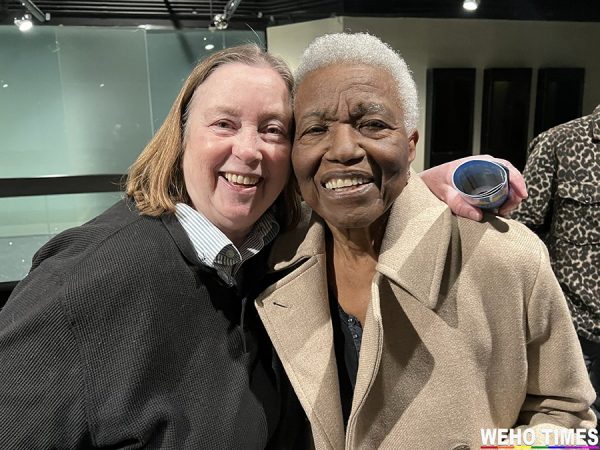
Using newly filmed interviews, never-before-seen clips from APLA’s gala fundraising events, rare archival footage, and long-forgotten PSAs, “Commitment to Life” reconstructs the virus’ devastating march and the city that rose to fight it. Like the virus itself, the story winds through gated communities and neighborhoods of color, government offices and university labs, hospital suites and studio sound stages to tell a story of courage and sacrifice — as well as one of discrimination and unequal treatment.
The “Commitment to Life” filmmaking team is helmed by Director & Editor Jeffrey Schwarz; Producers Aimée Flaherty, p.g.a. (“Moulin Rouge,” “Killing The Colorado”), and Jeffrey Schwarz, p.g.a.; Executive Producer Ron Sylvester (“Bystander Revolution,” “IMDb: What to Watch”); Co-Executive Producer Robert James Wood II; Co-Producer Taki Oldham; Associate Producer Michael Stabile; Executive Producer for APLA Health Craig Thompson; Supervising Producer for APLA Health Craig Bowers; Composer Allyson Newman (“Generation Q,” “The L Word”) with the participation of Gay Men’s Chorus of Los Angeles; and Cinematographer Adam Jason Finmann (“Daddy Issues,” “Dirty Cops”).
“Commitment to Life” Features Key Interviewees Featured in the Film: Jewel Thais-Williams Co-founder, Minority AIDS Project; Phill Wilson HIV/AIDS Activist; Karamo Brown “Queer Eye” Cast Member & HIV/AIDS Educator; Dr. Michael Gottlieb Physician and Former APLA Board Member; Bruce Vilanch Writer and Comedian; Jeffrey Katzenberg Former Chairman, Walt Disney Studios and APLA Board Member; Bill Misenhimer Former APLA Executive Director; Robert Contreras Co-Founder, Bienestar; Torie Osborn Former Executive Director, National Gay and Lesbian Task Force; Rev. Steve Pieters Former Field Director of AIDS Ministry, Metropolitan Community Churches; and Bamby Salcedo President, TransLatin Coalition.
**************************************************************************************
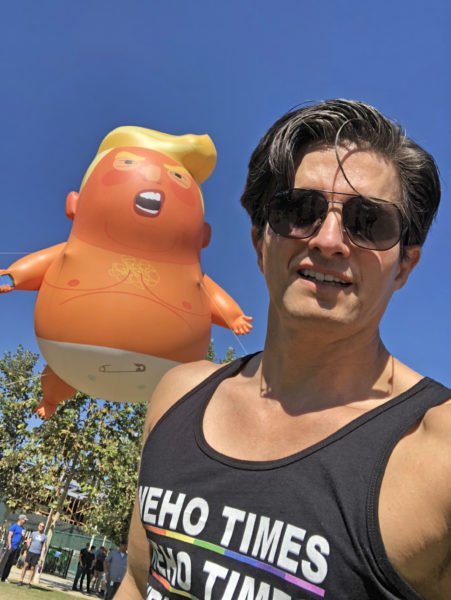
Paulo Murillo is Editor in Chief and Publisher of WEHO TIMES. He brings over 20 years of experience as a columnist, reporter, and photo journalist.
******************************
The preceding article was previously published by WeHo Times and is republished with permission.
-

 Commentary3 days ago
Commentary3 days agoThe perfect storm: Our queer infrastructure is in crisis
-

 a&e features5 days ago
a&e features5 days ago“I should have been there”: A queer Korean adoptee finds healing with original family members
-
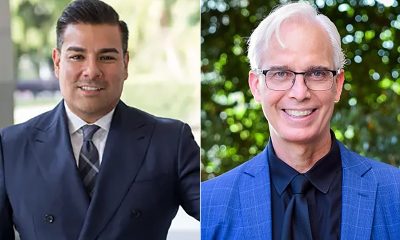
 California5 days ago
California5 days agoRicardo Lara, John Heilman inducted into Victory Institute’s Hall of Fame
-

 Television3 days ago
Television3 days ago‘Heated Rivalry’ is the gay hockey romance you didn’t know you needed
-
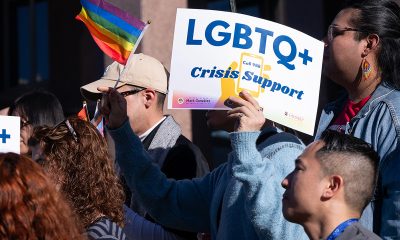
 LGBTQ+ Youth Mental Health4 days ago
LGBTQ+ Youth Mental Health4 days agoL.A. County officials advocate to reinstate “Press 3” crisis hotline for young queer people
-

 Los Angeles2 days ago
Los Angeles2 days agoRecent L.A. County report reveals record number of hate crimes against transgender and nonbinary community members
-

 Commentary2 days ago
Commentary2 days agoLove in the time of porn: a glimpse into the dating life of an adult performer
-

 Music & Concerts2 days ago
Music & Concerts2 days agoSalina EsTitties and GMCLA are primed and ready for this weekend’s ‘Holiday Legends’
-

 Health19 hours ago
Health19 hours agoChoose U ambassadors share lived experiences with HIV, personal reflections, and insights
-
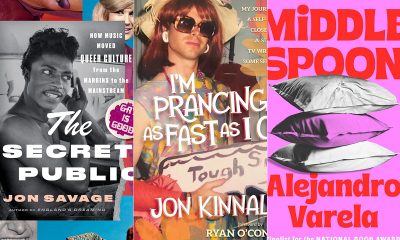
 Books11 hours ago
Books11 hours agoThe best books to give this holiday season


